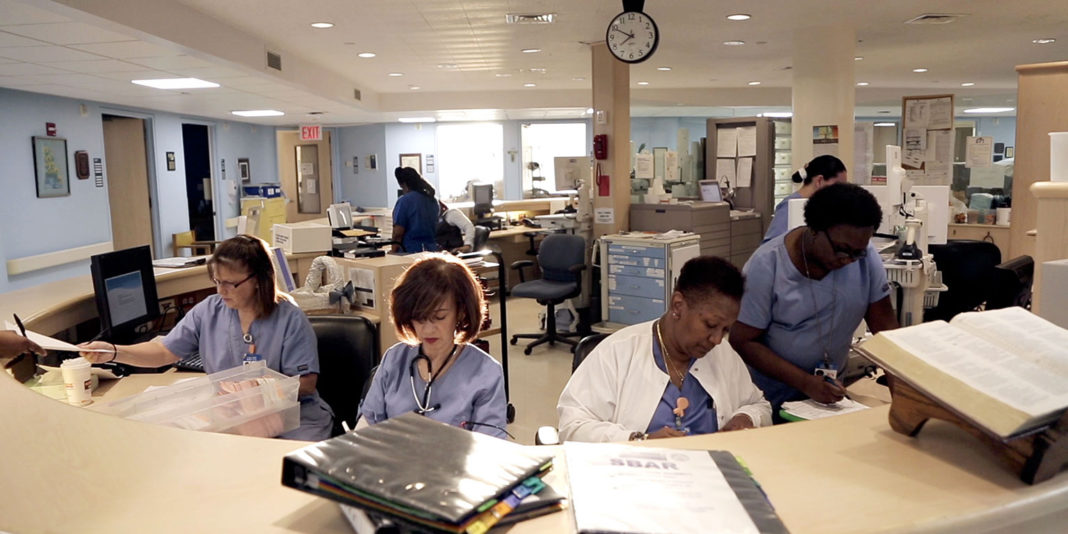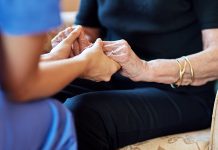“I always thought all nurses were alike – they come in, they take your blood pressure, they take your temperature, they smile. I just thought a nurse was a nurse.”
Then Manhattan-based filmmaker Carolyn Jones had breast cancer. The transformative experience of the chemotherapy nurse that helped get her through, also helped inspire two documentary films, and one more on the way, with nurses at their heart.
It has taken her into the home of a dying Appalachian miner with a community nurse who doesn’t let a road washout get in the way. And into one of the toughest prisons in America and to a lively rest home run by nursing nuns. As well as the bedside of the terminally ill, the ED gunshot victim and a birthing mother.
Jones, who was in New Zealand to speak about her work at last week’s Changing Lenses conference, says patient confidentiality often stops nurses speaking out about their experiences, which can mean that the public misses out on learning how rich an impact nurses actually make.
“Which is why I’ve got so highly motivated to have people understand what nurses do and understand the compassion they have – and to tell and share their stories. This ability to cherish these traits – these are beautiful traits – being transparent, being able to care for others and being non-judgemental.
It began in 2012 when Jones was asked to do a book that celebrated American nurses and she started with her chemotherapy nurse Joanne. She went on to spend a year photographing and interviewing more than 100 nurses across the country working in the military to schools.
“I got a glimpse into the world of nursing and it was nothing like I expected,” says Jones of the experience. So she chose five nurses from the book to dig deeper in the film The American Nurse: Healing America to find out more and that experience has prompted two more documentary films with nurses at their centre.
Jones says the intimacy of nursing work and traits like non-judgmentalism can transform people.
She points to the work of Tonia Faust, one of the nurses in The American Nurse, who works in Louisiana’s Angola Prison where the vast majority of prisoners are ‘lifers’, including Lafayette. Lafayette’s education had been on the streets where he had engaged in violent behaviour and lost friends but now was the constant and tender carer of fellow prisoners at the end of life.
“Her non-judgmentalism helped transform Lafayette who worked towards forgiving himself for things he had done in his life by every day getting up and going in and helping people in the hospice area of the prison.
“And I find that so powerful – if caring for others and understanding others can do that – then we need to follow some nurses. I want to show those stories as loudly as we can so we can see how valuable and transformative those nurses are. I think that – in the US at least – that we’ve forgotten how important these traits are.”
The first film prompted her next film Defining Hope, about the experience of dying in America and the nurses who guide people on their journey, and her next film looks at the shocking, tough world of emergency room care where tenderness can still be found.
She says while she was making the end-of-life film she lost both her parents within nine days of one another. “I don’t say this lightly…but I was given every tool that I needed to be given by nurses who had encouraged me to find out what they wanted (at end-of-life).”
Jones says she hopes her work can also help infuse nurses with pride about the difference they make.
“I know it’s really hard work and nurses experience burnout and it’s hard enough to find time for self-care. I keep that thinking if we can protect nurses, if we can cherish them and listen to them, then they can come to the us–the public–for support. And we can be a better support if we know more about what you do as nurses and how challenging it is.”





















